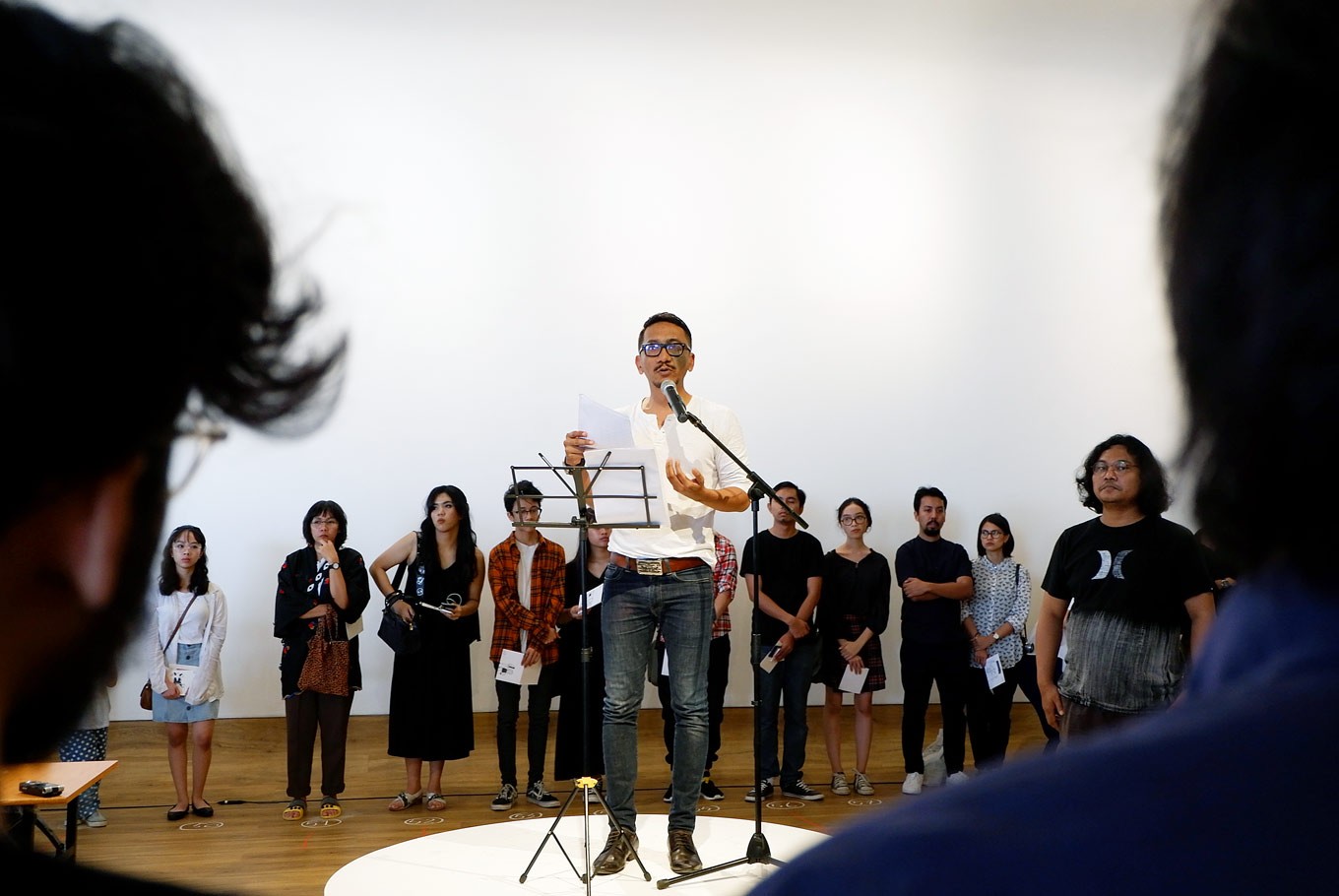Popular Reads
Top Results
Can't find what you're looking for?
View all search resultsPopular Reads
Top Results
Can't find what you're looking for?
View all search resultsThe eternal secret from the 1965 genocide
Decades after the mass murder of alleged communists and left-wing sympathizers, its victims are still unable to tell their personal accounts without risk.
Change text size
Gift Premium Articles
to Anyone
“I will tell you as much as I can about myself, but please do not publish it,” said the woman with gray hair I met about six years ago. She had been accused of being a member of Gerwani (the women’s wing of the Indonesian Communist Party/PKI) at the end of 1965 and as a result, was imprisoned, tortured and raped repeatedly.
She was not the only one. Many women still conceal their pain because of the shame and stigma, the risk of being labeled a liar, and the possible repercussions for not only themselves, but also their families.
It was no wonder that during the International People’s Tribunal on the 1965 genocide in The Hague, the female witnesses all decided to speak from behind a curtain, hiding their faces, and using pseudonyms.
But not all female survivors of the 1965 genocide are secretive about their personal experience. Some have revealed their experience of persecution, many of which include rape and torture. Despite the strong evidence (scars, medical evidence, documents and cross-investigation), the accounts of these female survivors continue to be questioned and even looked upon with disdain and contempt.
Decades after the mass murder of alleged communists and left-wing sympathizers, its victims are still unable to tell their personal accounts without risk. What does this say about the legacy of the New Order regime?
Soeharto stepped down, but his cronies remain. The 1998 reforms only ousted one person and have failed to change the regime’s legacy.
In a more democratic and fair country, the case of that woman I met may have ended up at court to bring the perpetrators to justice; she may even have been compensated for the crimes against humanity that befell her. But that was certainly not what she expected.
So why did that woman tell me her story? She just wanted someone to know what she had experienced and suffered. She simply wanted to be heard and for her story to not be dismissed.
Her story finally found a voice in fiction, as she is represented by one of the characters in my latest novel, Dari Dalam Kubur (From the grave). With her consent, I gave her a fictional name and changed her age, where she lived, her birthplace and other details so the reader would not discover her true identity.
However, even in fictional form, her story still underwent a long struggle. My novel was first accepted for publication by Gramedia at the end of 2018. Nevertheless, a few months later, the publisher told me that some details had to be altered or even omitted because of the sharp criticisms against the government, Soeharto’s cronies and certain religious groups. This included the personal account of that gray-haired woman.
I do not at all blame Gramedia for this. That woman’s fear is echoed in Gramedia’s stance: it is still not entirely safe to speak up, especially when it concerns gross human violations that which the New Order government. Gramedia has been attacked by several fundamentalist groups, and the government has done nothing to prevent further occurrences.
I nearly gave up and allowed my novel be subjected to Gramedia’s self-censorship. However, after I got in touch with another publisher, Marjin Kiri, that told me they would not censor my novel, I decided to withdraw my manuscript from Gramedia.
That woman’s story was finally published as part of my novel in early September this year. When preorders for the book had just opened, I received several comments accusing me of being a PKI member although the party was disbanded many decades ago. Clearly, these people cannot be bothered to read my book, but are eager to chastise anything they deem does not follow the New Order version of the 1965 genocide.
And that woman with gray hair? As I was finishing my novel, she once told me her hope: that one day it would be safe for her to speak up and be open about inspiring one of the characters in my novel.
But this will never happen. She passed away before my novel was published.
***
The writer is the author of Dari Dalam Kubur (From the grave), a novel published by Marjin Kiri, September 2020.










